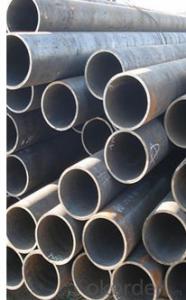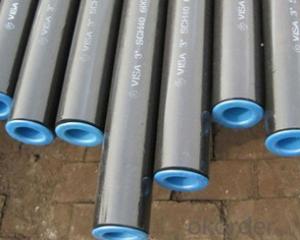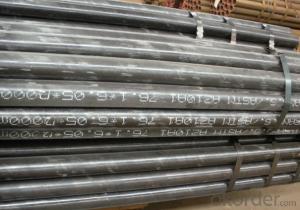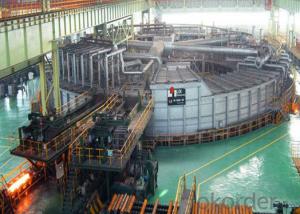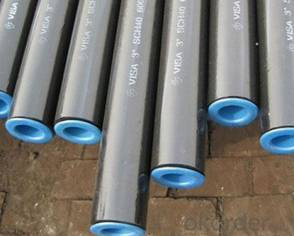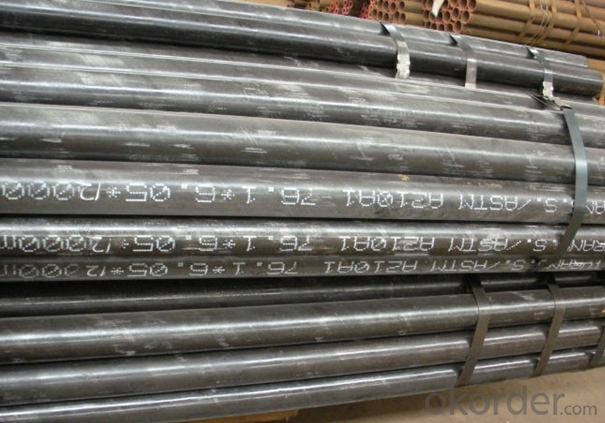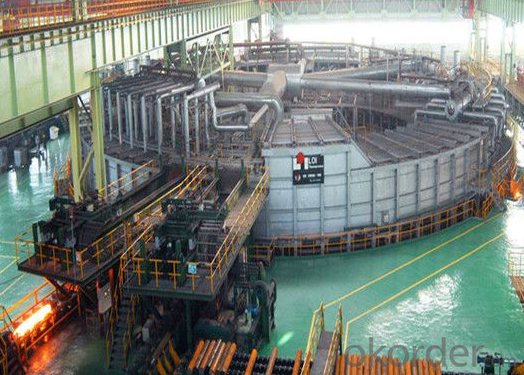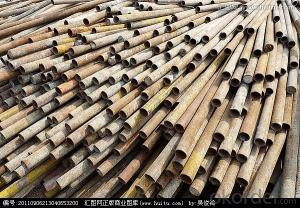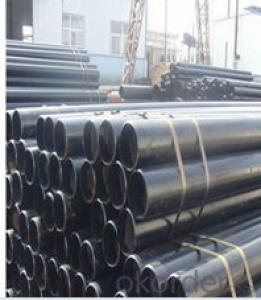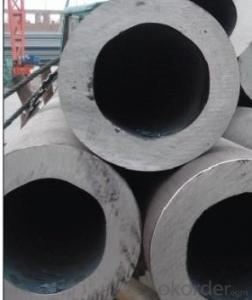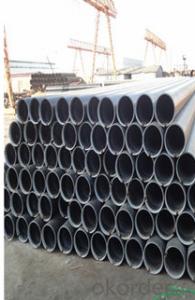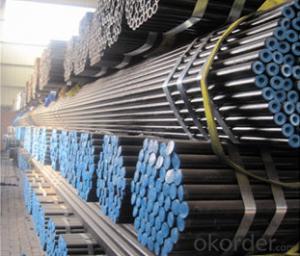High-quality Carbon Seamless Steel Pipe For Boiler ST37 CNBM
- Loading Port:
- Qingdao
- Payment Terms:
- TT OR LC
- Min Order Qty:
- 10 pc
- Supply Capability:
- 30 pc/month
OKorder Service Pledge
OKorder Financial Service
You Might Also Like
Quick Details
| Thickness: | 3 - 60 mm | Section Shape: | Round | Outer Diameter: | 21.3 - 1220 mm |
| Secondary Or Not: | Non-secondary | Application: | fluid pipe,boiler pipe, structural pipe, oil/gas/water pipe etc | ||
| Technique: | Hot Rolled | Certification: | ISO9001-2000, ISO14000, ISO18000 , API 5L | Surface Treatment: | Painted, Oiled, galvanized or phosphate etc |
| Special Pipe: | API Pipe | Alloy Or Not: | Is Alloy | Technique:: | Hot rolled or cold rolled |
| Special pipe:: | API/ ASME/thickwall/oil/gas/water pipe | Length:: | 3-12m | Treatment of two ends:: | Beveled end , plain end etc |
| Brand:: | Bai Chuan | Third Party Inspection:: | BV, SGS etc. | Schedule:: | SCH10-SCH160, XS, XXS |
| Other Material:: | 10#, 20#, 16Mn, Q345 etc | Material Type:: | Carbon steel/ Low alloy steel | Producing standard:: | American/Japanese/ German/ Britain/ Chinese standard |
| Grade: | A53(A,B),A106(B,C),A210,API J55,St37,STPG42,A53-A369,API J55-API P110,ST35-ST52 | Standard: | BS EN10296,JIS G3452-2004 |
1. Out Diameter: | 21.3mm-1220mm |
2. Wall Thickness: | 3mm-60mm |
3. Length: | 3m-12m |
4. Producing Standard: |
|
5. Main Material: (Carbon Steel & Low Alloy steel) |
|
6. Special specifications: | Available according to customer’s requirements and quantity. |
7. End Shape: | Beveled end , plain end, varnished, or adding plastic caps to protect the two ends as per customer’s requirements. |
8. Surface treatment: | Painted, Oiled, galvanized, phosphate etc. |
9. Usage: |
|
10. Certificates: | ISO9001-2000, ISO14000, ISO18000, API 5L certificate |
11. Third party inspection: | Welcome you to send a third party inspecting company (BV, SGS etc) to check the quality of our final products. |
12. Pictures: | our producing flow chart, our factory, production line, inspecting equipments, our products are listed below for your reference. |
- Q: How are steel pipes used in the automotive exhaust system?
- Steel pipes are used in the automotive exhaust system to transport and expel the exhaust gases from the engine. They are durable and resistant to high temperatures, making them suitable for this purpose. Steel pipes are often bent and welded together to form the exhaust system, ensuring a smooth flow of exhaust gases and minimizing any leaks.
- Q: What is the weight of steel pipes?
- The weight of steel pipes can vary depending on their size, length, and thickness. However, on average, steel pipes typically weigh between 1.1 to 1.5 pounds per foot.
- Q: How do you clean steel pipes?
- To effectively clean steel pipes, there are several steps that can be followed: 1. Collect the necessary supplies: You will require a pipe cleaning solution, either a scrub brush or wire brush, and safety gear like gloves and goggles. 2. Prepare the cleaning solution: Dilute the pipe cleaning solution according to the instructions provided on the packaging. Ensure that you select a solution suitable for steel pipes. 3. Prioritize safety: Put on your safety gear to safeguard yourself from any potential hazards. 4. Eliminate any debris: Before applying the cleaning solution, eliminate any loose debris or dirt from the surface of the steel pipes. You can utilize a brush or cloth to wipe away any visible particles. 5. Apply the cleaning solution: Immerse the brush into the prepared cleaning solution and administer it to the steel pipes. Ensure that you cover the entire surface, particularly focusing on areas with stubborn dirt or grime. 6. Scrub the pipes: Thoroughly scrub the steel pipes using the brush, applying pressure as needed to eliminate any buildup or stains. Pay extra attention to joints or hard-to-reach areas. 7. Rinse with water: Once you have completed the scrubbing, rinse the pipes with clean water to eliminate the cleaning solution and any remaining dirt. You can pour water over the pipes or employ a hose if available. 8. Dry the pipes: After rinsing, use a cloth or towel to completely dry the steel pipes. This will aid in preventing water stains or corrosion. 9. Inspect for cleanliness: Take a moment to inspect the pipes and ensure that they are clean. If there are still areas with stubborn dirt or stains, you may need to repeat the cleaning process or consider using a different cleaning solution. Always remember to adhere to the manufacturer's instructions when using cleaning solutions and to take appropriate safety measures.
- Q: What is the electrical conductivity of steel pipes?
- Steel pipes have a high electrical conductivity due to the metallic nature of steel. The electrical conductivity of steel pipes can vary depending on the specific composition and properties of the steel used. Generally, steel has a conductivity ranging from 6.99 × 10^6 to 9.64 × 10^6 siemens per meter (S/m) at room temperature. This conductivity allows steel pipes to efficiently conduct electricity and be used in various applications such as electrical transmission and grounding systems.
- Q: What are the different methods of non-destructive testing for steel pipes?
- The different methods of non-destructive testing for steel pipes include visual inspection, ultrasonic testing, magnetic particle testing, liquid penetrant testing, and radiographic testing. These methods are used to detect defects or abnormalities in the pipes without causing any damage. Visual inspection involves a thorough visual examination of the pipe's surface. Ultrasonic testing uses high-frequency sound waves to identify internal flaws or thickness measurements. Magnetic particle testing detects surface and near-surface defects by applying a magnetic field and inspecting for magnetic particles. Liquid penetrant testing involves applying a liquid dye to the surface and inspecting for any visible indications of defects. Radiographic testing uses X-rays or gamma rays to capture images that reveal internal defects or flaws in the steel pipes.
- Q: How are steel pipes insulated to prevent heat gain?
- Steel pipes are insulated to prevent heat gain by using materials with low thermal conductivity, such as fiberglass or mineral wool, which are wrapped around the pipes. This insulation layer acts as a barrier, reducing the transfer of heat from the surroundings to the pipes, thereby minimizing heat gain. Additionally, a vapor barrier may be applied over the insulation to prevent moisture ingress, which could further impact the insulation's effectiveness.
- Q: What are the different factors affecting the flow rate of steel pipes?
- The flow rate of steel pipes can be affected by multiple factors. Let's explore some of these factors: 1. Pipe diameter: The size of the pipe plays a significant role in determining the flow rate. Generally, larger pipes allow for greater flow rates as they provide a larger cross-sectional area for the fluid to pass through. 2. Pipe length: The length of the pipe also impacts the flow rate. Longer pipes tend to have higher friction losses, which can decrease the flow rate. Moreover, longer pipes may require higher pressure to maintain the desired flow rate. 3. Fluid viscosity: The viscosity of the fluid passing through the pipe is an important consideration. Viscous fluids, such as heavy oils, exhibit higher resistance to flow, resulting in lower flow rates. Conversely, less viscous fluids, like water, encounter lower resistance and can achieve higher flow rates. 4. Pressure difference: The pressure difference across the pipe serves as a driving force for flow. A higher pressure difference will lead to a higher flow rate, while a lower pressure difference will reduce the flow rate. 5. Surface roughness: The roughness of the inner pipe surface influences the flow rate. Rough surfaces generate more turbulence and friction, thus resulting in a lower flow rate. Conversely, smoother surfaces minimize turbulence and friction, allowing for a higher flow rate. 6. Temperature: The temperature of the fluid can impact its viscosity and density, which subsequently affect the flow rate. Higher temperatures generally decrease the viscosity of fluids, leading to increased flow rates. 7. Pipe material: The choice of pipe material impacts the flow rate due to varying roughness and resistance. Steel pipes, for instance, typically possess a smoother inner surface compared to pipes made of other materials, resulting in higher flow rates. 8. Pipe fittings and bends: The presence of fittings, valves, and bends in the pipe can cause flow restrictions and pressure drops, which can decrease the flow rate. Proper design and placement of these components can minimize their impact on the flow rate. Understanding the interplay of these factors is essential for the design and optimization of fluid flow systems involving steel pipes.
- Q: How are steel pipes repaired if they are damaged?
- Steel pipes can be repaired if they are damaged by various methods such as welding, pipe lining, or using repair clamps. The chosen repair method depends on the extent and type of damage to the pipe.
- Q: How do you calculate the weight of a steel pipe?
- To calculate the weight of a steel pipe, you need to know its outer diameter, wall thickness, and length. First, calculate the cross-sectional area of the pipe by subtracting the inner diameter from the outer diameter and multiplying it by π. Then, multiply the cross-sectional area by the wall thickness and length of the pipe to find its volume. Finally, multiply the volume by the density of steel to calculate the weight of the steel pipe.
- Q: What is the impact resistance of steel pipes?
- The impact resistance of steel pipes is quite high due to the inherent properties of steel as a material. Steel is known for its strength and durability, which makes it able to withstand significant external forces and impacts without deforming or breaking. The impact resistance of steel pipes is further enhanced by their construction and design. Steel pipes are typically made using various manufacturing techniques such as seamless or welded construction, which ensures uniformity and strength throughout the pipe structure. This construction process eliminates weak points or seams that could compromise the impact resistance of the pipe. Moreover, steel pipes can be engineered to meet specific requirements for impact resistance based on the intended application. Different grades and types of steel can be used to achieve varying levels of impact resistance, allowing for customization to suit different industries and environments. The high impact resistance of steel pipes is particularly advantageous in industries such as construction, oil and gas, and transportation, where pipes are subjected to heavy loads, pressure, and potential impacts. Steel pipes can withstand these conditions, making them a reliable choice for various applications. In summary, the impact resistance of steel pipes is excellent due to the inherent strength and durability of steel as a material, as well as the construction techniques used in their manufacturing. Steel pipes can withstand significant external forces and impacts, making them a reliable and robust choice for a wide range of industries and applications.
Send your message to us
High-quality Carbon Seamless Steel Pipe For Boiler ST37 CNBM
- Loading Port:
- Qingdao
- Payment Terms:
- TT OR LC
- Min Order Qty:
- 10 pc
- Supply Capability:
- 30 pc/month
OKorder Service Pledge
OKorder Financial Service
Similar products
Hot products
Hot Searches
Related keywords
